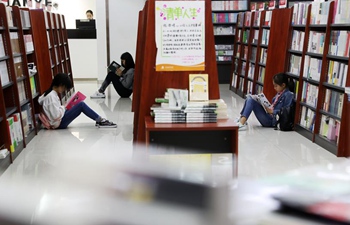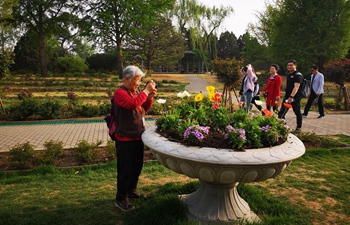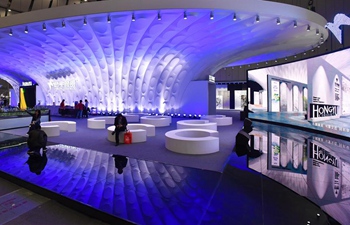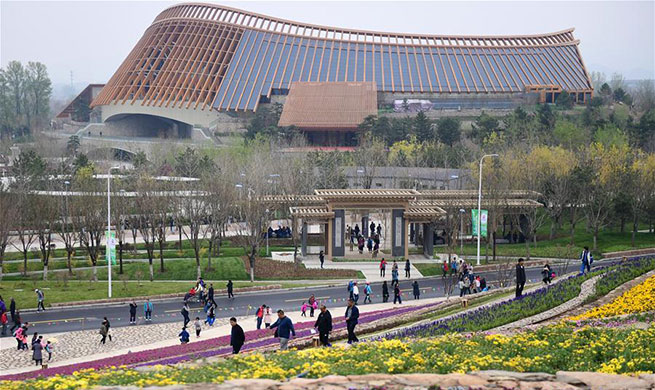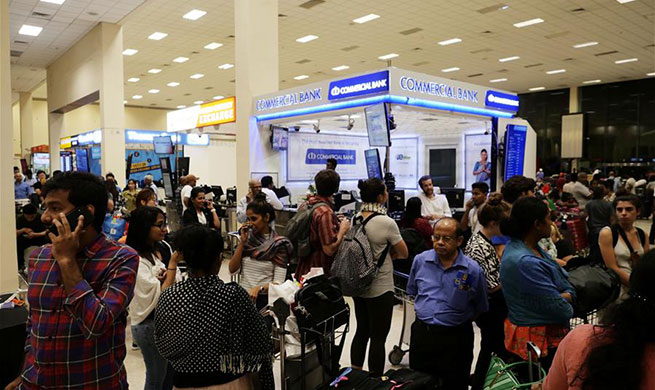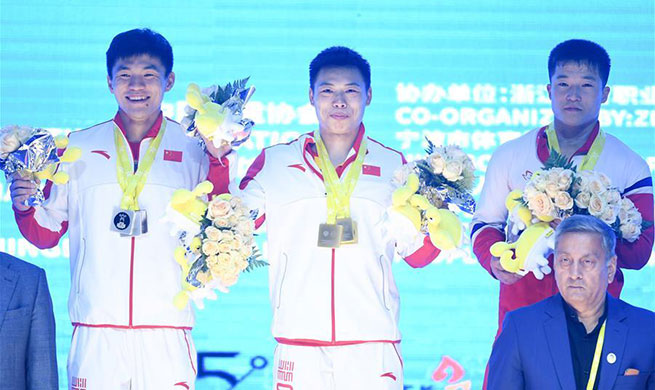SEOUL, April 22 (Xinhua) -- "In the past, all roads led to Chang'An, ancient capital of China. Now, all roads lead to Beijing," said Choi Jae Cheon, a 56-year-old South Korean lawyer.
What Choi is trying to depict is the China-proposed Belt and Road Initiative (BRI) that he called "a huge platform where everyone has an opportunity to create value and share their common interests."
The BRI refers to the Silk Road Economic Belt and the 21st Century Maritime Silk Road, and seeks to revive ancient land and sea trade routes to connect China and participating states via win-win trade exchanges, joint investments and infrastructure projects for multilateral development.
It has been gaining growing popularity ever since, and so far has attracted 126 countries and 29 international organizations to sign BRI cooperation agreements with China.
Born in the southwest of the country, Choi was a member of the National Assembly for thirteen years. Three years ago when he announced that he would be stepping down from the assembly, he decided to establish a think tank on the BRI.
The decision was made out of concerns for the South Korean economy in recent years, according to Choi. Due to political unrest and the high debt ratio of consortia, growth of the South Korean economy hit a new low in 2018.
Choi has considered the BRI as a lifebelt in troubled times. He said that the BRI "will have a huge impact on the Korean society in the coming years, though few people are aware of it."
In February 2017, Choi set up the New Silk Road Institute, with his law firm office as its base. This burgeoning think tank is composed of young scholars from the United States, Turkey, Mongolia and other countries. They are all, like Choi, passionate about the BRI.
"We wanted to publish books and manuals. We wanted to offer MBA courses. We wanted to expand and do so many other things," said Choi.
But things went not so well in the beginning. The most difficult part for Choi was getting permission for the incorporation of the institute as a legal entity in its own right.
According to South Korean law, the institute can only hold internal seminars before its application is approved.
It took him two years to secure the certificate of incorporation for the institute as a legal entity after the first submission of the application. Then Choi, the institute's general secretary, immediately started to organize a Youth Forum on the BRI.
On Feb. 28, 2019, the Belt and Road Youth Forum was held at the Hotel Myeongdong in Seoul, with the participation of more than 100 youth delegates from over 80 countries. The forum also held four parallel sessions including one on A Community with A Shared Future.
"I cannot accomplish the work alone. What I can do is the tip of an iceberg," admitted Choi, who hopes that the Belt and Road Youth Forum can be held biennially.
"I hope our younger generation has the confidence to create a future for the whole world," he said.
For the future work, Choi plans to publish a book entitled Belt and Road in South Korea to introduce the results of his BRI studies to South Korea. And he also hopes, through his think tank, that he can form a connection between South Korea's national strategy and the BRI.



